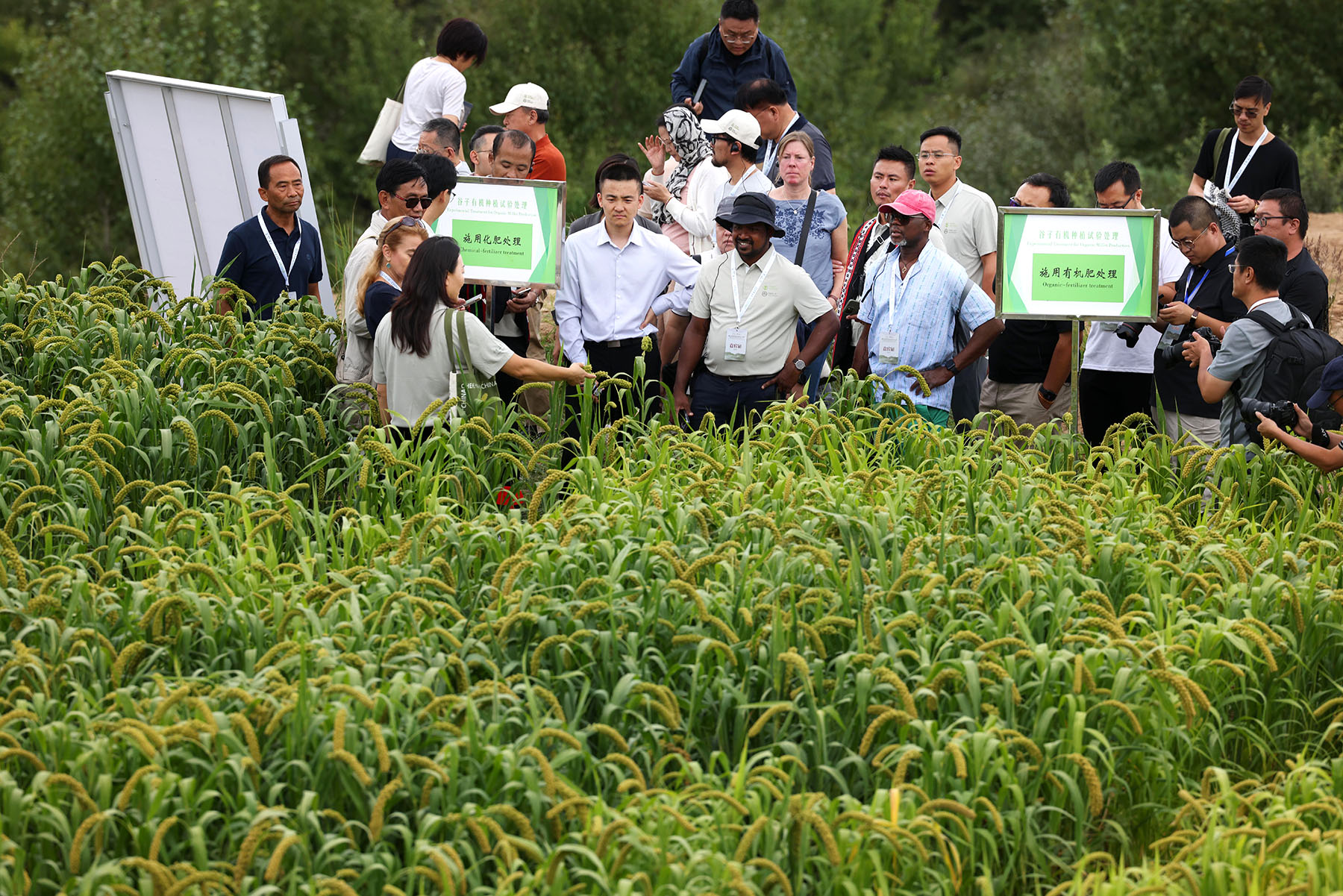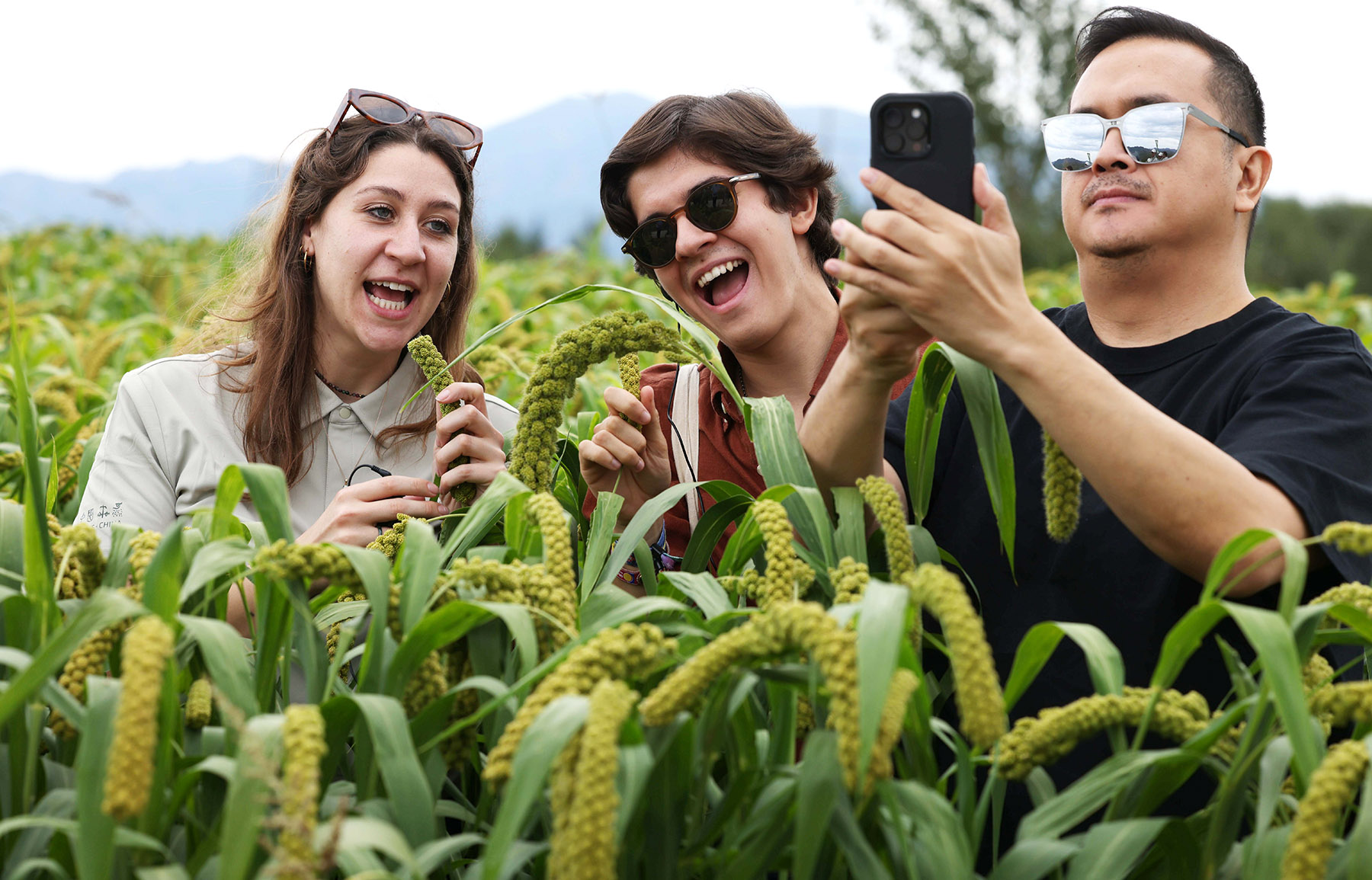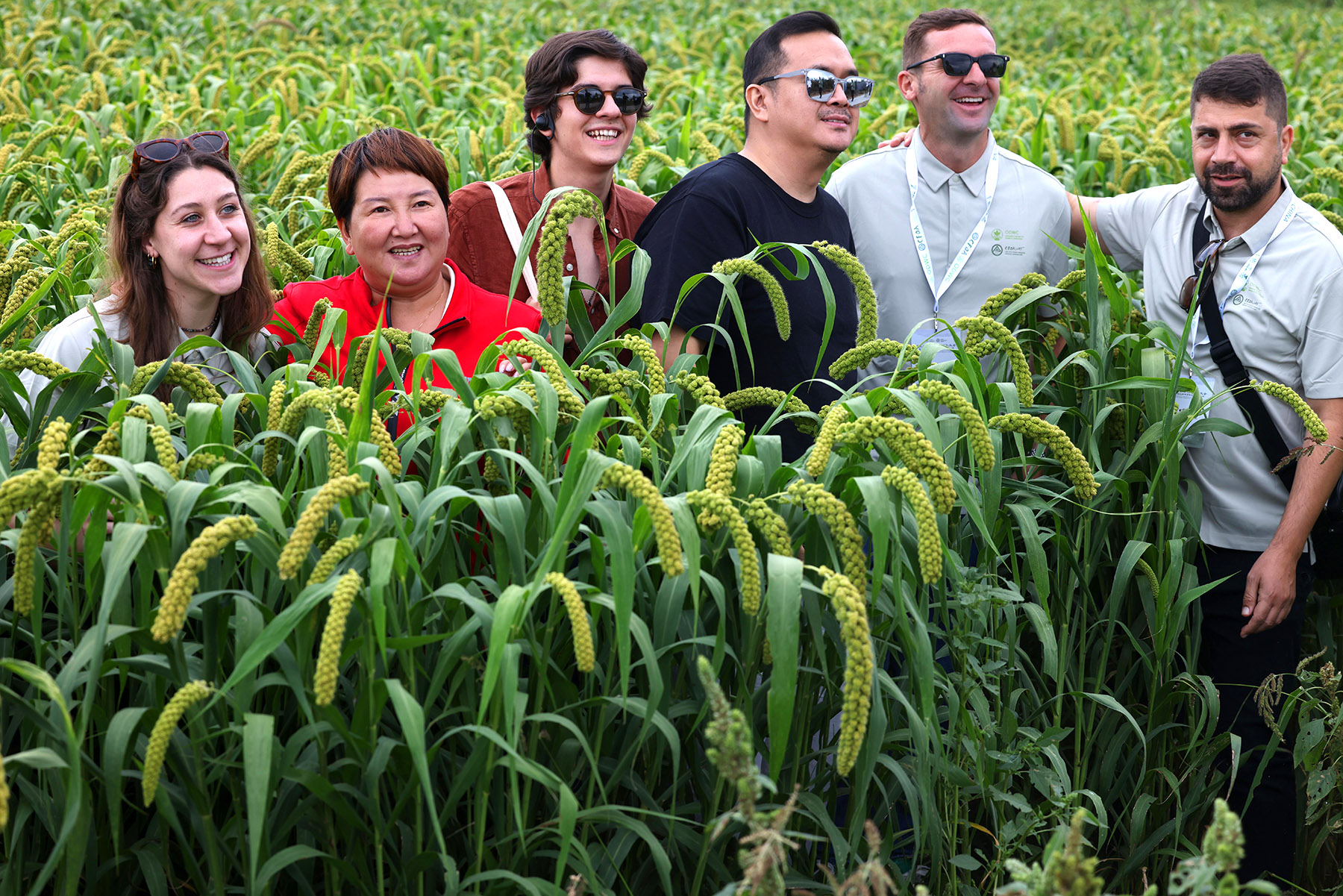Hamlet integrates agriculture and tourism, boosting rural vitalization

Tucked away in the rugged landscape of the Taihang Mountains in northeastern Shanxi province, the hamlet of Chehe in Lingqiu county has blossomed into a thriving village by embracing the principles of organic agriculture.
For decades, Chehe village was a place of hardship. Its land was barren, its infrastructure outdated, and its people reliant on the whims of nature for their livelihood. Led by village head Wang Chun, they had long struggled to eke out an existence from the unforgiving landscape. In the 1990s, Wang started leading villagers to plant trees on the barren slopes around the village.
However, the real change came in 2013.
That year, under the guidance of the China Agricultural University and in collaboration with 16 other organizations, Chehe was chosen as the first pilot site for an ambitious organic agriculture initiative. The project, outlined in the "Lingqiu County Organic Agriculture Park Implementation Plan (2013-2030)", aimed to transform the local economy and environment through sustainable practices.
"I was confident that organic agriculture was the right path," Wang recalled. "And it has changed everything."
READ MORE: Farm waste turned into biofuel produces healthy profit
With his leadership, the villagers pooled their resources — land, forests and rivers — into a cooperative, breaking away from traditional farming methods and embracing organic cultivation and livestock rearing.
The transformation was nothing short of miraculous. Nearly 47 hectares of land were converted into organic farmland, where villagers cultivated a variety of organic grains and vegetables. They also employed organic methods to raise over 30,000 chickens and 5,000 sheep. All these products were certified as traceable organic goods, quickly capturing the attention of eager markets in nearby Hebei province and major cities like Beijing and Tianjin.

A single organic egg from Chehe became a coveted item, contributing significantly to the village's newfound prosperity, Wang said. Last year, eggs from Chehe yielded an income of 3 million yuan ($420,000) for the village cooperative.
By 2023, Chehe's collective income soared from zero in 2013 to 138 million yuan, with individual incomes increasing from 2,300 yuan in 2013 to 25,000 yuan in 2023.
The village, once labeled impoverished, was now thriving. The success of Chehe's organic model attracted international attention, becoming a case study in poverty alleviation and rural vitalization.
The village didn't stop at agriculture. It seamlessly integrated organic farming with tourism, creating a unique cultural experience. Visitors could walk through lush vegetable gardens, pick fresh produce, and stay in charming guesthouses that offered an authentic taste of rural life.
Chehe even built a 1,200-meter-long scenic boardwalk, drawing tourists eager to experience the beauty and tranquility of the countryside.
The impact of Chehe's transformation extended far beyond its borders. At present, Lingqiu county has established an organic food production base spanning 2,000 hectares, with 133 organic varieties certified. The total output value of organic agriculture has reached 570 million yuan.
At the Third Organic Districts World Congress and the 12th Datong Chehe International Organic Agriculture Forum, held in Lingqiu on Aug 26, more than 150 experts from 25 countries, including Italy, Germany and Indonesia, gathered to explore how holistic organic agriculture could drive high-quality economic development.

The conference focused on the role of organic agriculture in addressing environmental challenges such as climate change and soil degradation. It emphasized the use of eco-friendly technologies to achieve ecological restoration and stable production, offering sustainable agricultural solutions for arid regions.
Patrick Deegbe, an entrepreneur from Switzerland and a participant in the conference, said that he was impressed by the agriculture project developed in Chehe. The village is transforming into an organic community and helping its residents shake off poverty, he said. The model can be introduced to African countries such as Ghana, he added.
In his speech at the opening ceremony, Liu Junyi, mayor of Datong which administers Lingqiu, said that since 2013, Lingqiu has been using organic agriculture as a strategic pivot to drive industrial transformation and promote rural development. Starting with the Chehe community as a pilot, they have advanced the construction of "organic production, organic society, and organic community", exploring a new path for agricultural development in the northern Shanxi region.
ALSO READ: China emerges as global biodiversity champion
"In the future, Datong will continue to deepen international exchanges and cooperation, promoting further progress and achievements in the development of organic agriculture," he said.
Zhou Zejiang, president of the Advisory Board of the International Federation of Organic Agriculture Movements-Asia, said that Chehe's success story was a testament to the power of organic agriculture as a bridge connecting diverse communities, governments, businesses and traditional farming wisdom with innovative ideas.
"Chehe was once a poor mountain village. Now, it stands as a model of agricultural and cultural richness, a testament to the collective efforts of its people," he said.
Contact the writers at zhuxingxin@chinadaily.com.cn


